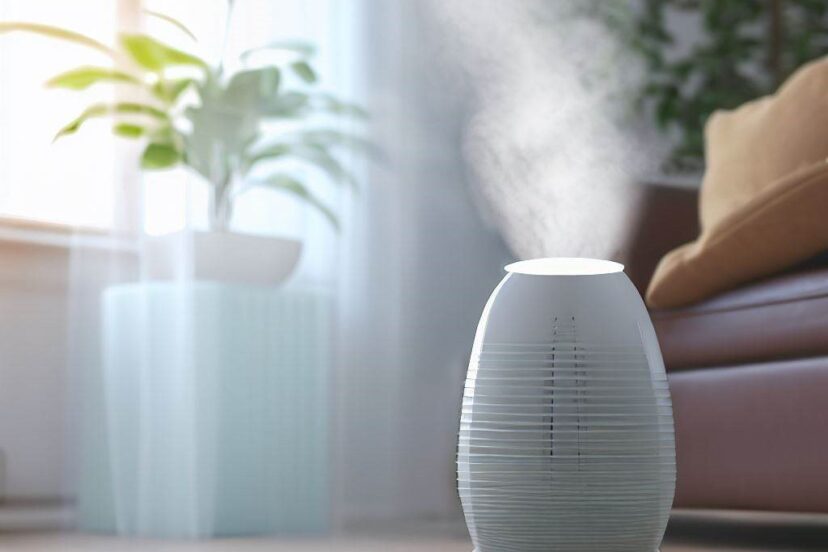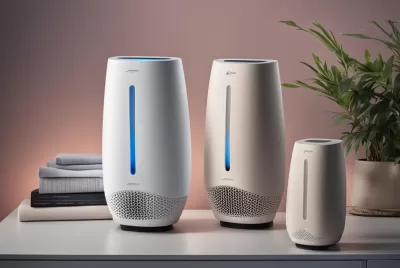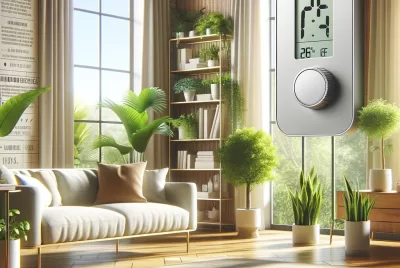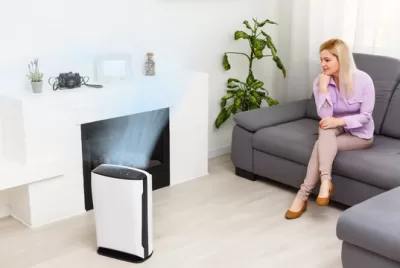Air Purifiers vs. Humidifiers: Unveiling the Differences
"We may earn a commission for purchases made using our links. Please see our disclosure to learn more."
Imagine the very air you breathe being the cause of your incessant sneezes or that persisting itch in your throat. What if I told you that you have a choice in determining the quality of your indoor air? Ever wondered about air purifiers vs humidifiers, which one would come to your rescue? Let’s embark on a journey to explore these household contraptions, their roles, and differences.
Understanding the Basics: Air Purifiers vs Humidifiers?
Before we pit these two appliances against each other, let’s unravel what they are, their uses, and the benefits they offer.
Defining Air Purifiers
Air purifiers, your invisible guardians, work silently to sanitize the air that circulates around your home. They trap and eliminate microscopic particles like dust, allergens, and even bacteria that invisibly float in your indoor atmosphere.
So, how does an air purifier work? Inside this contraption is a series of filters that trap these airborne contaminants. Then, it circulates the cleaned air back into the room, creating a healthier breathing environment.
Air purifiers offer a plethora of benefits. They can significantly decrease allergy symptoms, asthma attacks, and even snoring. Yes, you heard it right! Cleaner air can pave the way to sounder sleep.
Defining Humidifiers
On the other hand, humidifiers are your indoor weather controllers. They combat dry indoor air by restoring moisture, making your environment comfortable.
So how do humidifiers work? These devices emit water vapor into the surrounding air, increasing the humidity levels.
The benefits of humidifiers are not limited to just alleviating dry skin and lips. They can reduce instances of respiratory discomfort, lessen static electricity, and even contribute to the longevity of your wooden furniture. Who would’ve thought, right?
So when you’re looking at air purifiers vs humidifiers, keep in mind these distinct characteristics and benefits.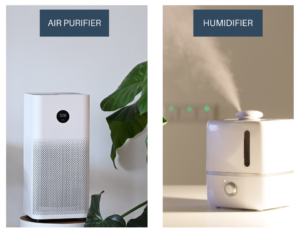
A Closer Look at Air Purifiers
It’s like entering a ninja world when we dive deep into the mechanisms of an air purifier. Let’s unravel the mystery.
The Inner Workings of an Air Purifier
The heart of an air purifier lies in its filtration system. It operates as a vacuum cleaner for your air, sucking in polluted air, filtering out the contaminants, and then releasing fresh air back into your home.
In this filtration process, air purifiers rely on HEPA (High Efficiency Particulate Air) filters, which can remove up to 99.97% of particles that are 0.3 micrometers in diameter. Think of it as a super-sieve catching everything unhealthy while letting pure air pass.
There are different types of air purifiers, each addressing unique air quality issues. For instance, the activated carbon filters can absorb odors and gases, while UV light air purifiers kill germs and bacteria. So, when it comes to “differences between air purifiers and humidifiers,” one key aspect is that air purifiers can actively kill or trap harmful particles, a feature absent in humidifiers.
When Should You Use an Air Purifier?
Air purifiers are like unsung heroes when it comes to combating indoor air pollution. They are ideal for households with allergy sufferers, asthma patients, or people with other respiratory issues. These appliances can also be a boon if you live in high-pollution areas or have pets that shed dander.
The benefits are pretty clear, but what about potential drawbacks? Although air purifiers improve indoor air quality, they can sometimes produce trace amounts of ozone, a potential lung irritant. However, this is mostly linked to specific types of air purifiers like ozone generators.
A Closer Look at Humidifiers
Humidifiers, your personal indoor rainmakers, are just as fascinating. So, what’s the deal with them?
The Inner Workings of a Humidifier
Humidifiers function by adding water vapor to your indoor air, thereby increasing the humidity levels. They work like tiny personal clouds, albeit without the thunder!
There are different types of humidifiers, each operating a bit differently. The most common ones include evaporative, ultrasonic, and steam vaporizers. While evaporative humidifiers blow moisture off a wicking filter, ultrasonic ones use high-frequency vibrations to produce a cool mist. Steam vaporizers, on the other hand, create steam by heating water electrically.
When Should You Use a Humidifier?
You might think of turning to humidifiers when you’re battling the dry winter air or dealing with dry skin, lips, and throat. They can also be useful to alleviate symptoms of a cold or respiratory conditions that can benefit from higher humidity levels.
However, a caveat to consider – excessive humidity can encourage mold growth and dust mites. It’s about balance and maintaining indoor humidity levels between 30% and 50% is generally recommended.
As we traverse through the pros and cons of air purifiers vs. humidifiers remember, the choice between the two depends largely on your individual needs and environment. So, which is better: air purifier or humidifier? Well, it’s not about better, it’s about what’s best for you!
Comparing Air Purifiers and Humidifiers
Purpose and Functionality
Air purifiers and humidifiers may both sit in the corner of your room, yet their purposes and functionality couldn’t be more different.
Air purifiers are like health detectives. They seek out and neutralize harmful particles that pollute your indoor air, ensuring that every breath you take is as clean as possible. They are best used in areas where air pollution is a concern, especially if you’re an allergy sufferer or have respiratory issues.
Humidifiers, on the other hand, are more like comfort officers. They don’t clean the air, but they add moisture to it, ensuring that your skin, lips, and nasal passages remain well-hydrated. They’re particularly useful during dry seasons or in arid climates where dry air can cause discomfort.
In essence, air purifiers are your line of defense against airborne pollutants, while humidifiers help maintain a comfortable and healthy humidity level. The question of “Air purifier or humidifier: choosing the best option” boils down to the specific need of your home environment.
Health and Lifestyle Implications
When comparing “Air purifiers vs. humidifiers: pros and cons,” it’s vital to consider health and lifestyle implications.
Air purifiers help to reduce the risk of allergies and asthma attacks. For fitness enthusiasts or anyone who loves a dust-free environment, an air purifier is a valuable addition.
On the flip side, humidifiers can be a lifesaver for those who suffer from dry skin or have respiratory issues worsened by dry air. Musicians, particularly singers, may also appreciate a humidifier to soothe their vocal cords.
There are times when both devices can be used harmoniously. For example, in winter, the air can be both dry and full of particles from heaters and fireplaces. In such scenarios, an air purifier can cleanse the air while a humidifier restores the moisture lost, providing you a cozy and healthy indoor environment.
Conclusion
Navigating through the topic of air purifiers vs.humidifiers explained (similarities and differences), we’ve unearthed that air purifiers and humidifiers serve distinct yet vital roles in enhancing the indoor air quality and comfort of our homes.
In the great debate of “Air purifiers vs humidifiers,” it’s not so much about which is better overall, but rather which is better suited to your specific needs and conditions. Be it the air purifier, the health detective, or the humidifier, the comfort officer, each plays its part in “improving indoor air” and making your living space more enjoyable.
Remember, the goal isn’t to choose between air purifiers and humidifiers, but to make an informed decision about what your home and health need the most.
FAQs: Air Purifiers vs Humidifiers
- Can I use an air purifier and humidifier together in the same room? Absolutely! In fact, using both can sometimes provide the best solution, especially in winter when the air can be dry and polluted.
- Is an air purifier or humidifier better for asthma? Air purifiers can be beneficial for asthma as they help remove allergens and pollutants that can trigger symptoms. However, it’s important to consult with your healthcare provider for personalized advice.
- Can air purifiers and humidifiers help with allergies? Yes, air purifiers can remove allergens like pollen and dust from the air, helping to alleviate allergy symptoms. Humidifiers, on the other hand, can soothe dryness related to allergic reactions.
- Do I need to run an air purifier or humidifier all the time? The need to run these devices continuously depends on your specific needs and the quality of your indoor air. While some may benefit from 24/7 operation, others might need to run them for a few hours daily.
- Which is more expensive to run, an air purifier or a humidifier? The cost of running these devices depends on various factors like power consumption, filter replacement for air purifiers, and water usage for humidifiers. However, in general, the difference is not significantly high.
Authority References
- American Lung Association: https://www.lung.org/
- U.S. Environmental Protection Agency: https://www.epa.gov/
- Mayo Clinic: https://www.mayoclinic.org/

